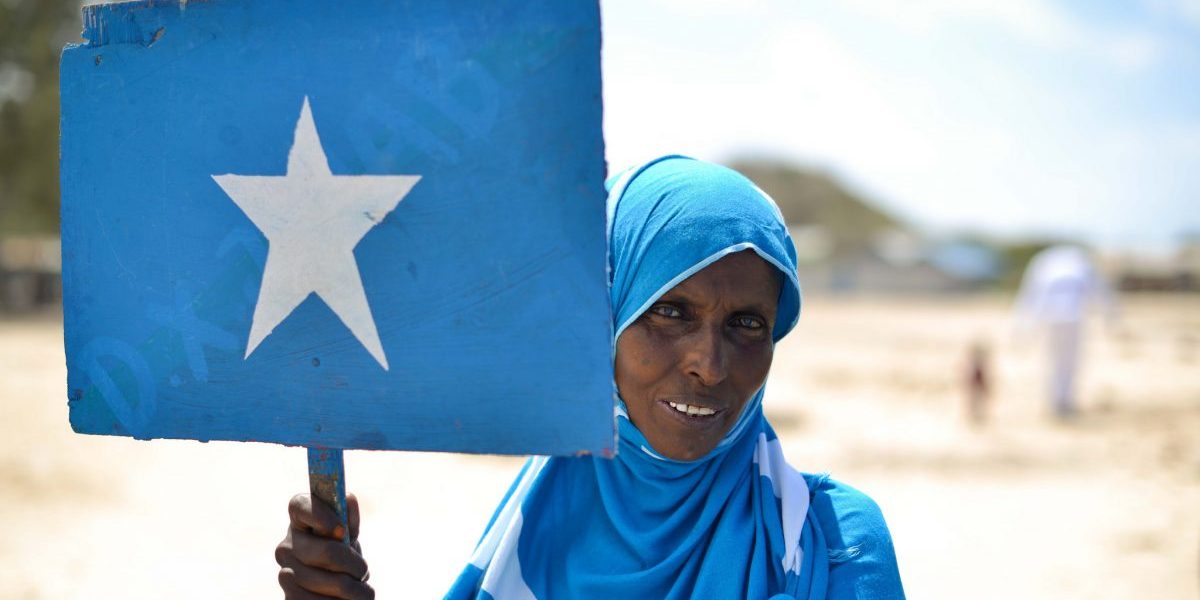What does the future hold for the self-declared, independent, and unrecognised Somaliland in the Horn of Africa? After the end of colonialism in Africa, Somaliland was independent for a short period in the 1960s, between the end of British rule and the establishment of a union with the former Italian colony of Somalia. Following the overthrow of the military dictator, Mohamed Siad Barre, Somaliland proclaimed independence on May 18, 1991.
However, nearly two decades later Somaliland is not recognised by any country or international organisation. Nevertheless, the largely nomadic country has managed not only to survive, but even enjoy relative peace and stability – at least until now.
At present Somaliland is experiencing political unrest as a result of postponed elections. The term of office of the current president, Dahir Riyale Kahin, expired in April 2008, but the poll was delayed in order to complete voter registration. Since then, elections have been postponed repeatedly. The latest delay was a result of complaints about irregularities on the new voters’ registration list – the first to be drawn up since Somaliland’s formation.
While both the government and opposition parties wanted elections to go ahead, their conditions for this to happen differed. The opposition insisted that they take place on the basis of the flawed list, while the government suggested that the ballot should take place without a list. This prompted the opposition to set in motion the impeachment of the president. When officials put it up for debate, parliamentarians started fighting – one even pulled out a gun although no shots were fired.
While Somaliland was previously praised for a lack of violence in spite of political disagreements, this changed on September 12 when three people died and another six were injured during a confrontation in which police used live ammunition and tear gas to disperse opposition supporters protesting over the election delays.
In recent days it has been announced that the ruling and opposition parties have signed a six-clause agreement, formally ending the crisis. The agreement reportedly prohibits the current government from extending its term without consulting the opposition, calls for the election commission to be replaced and asks for international experts to complete the new computerised voter registration system.
What next for Somaliland?
Even though the early years of the nation’s existence were characterised by power struggles among rival clans, they eventually reached power-sharing agreements which resulted in its unique political structure: a hybrid system of governance consisting of a lower house of elected representatives and an upper house incorporating tribal clan elders. Somaliland even fulfils all four of the prerequisites of statehood laid down in the 1933 Montevideo Convention: a territory, a government, a population and the ability to enter into international agreements.
But in its quest for full statehood Somaliland lacks the most important unwritten qualification – recognition by fellow states in the international system. Whether the incumbent president stays or someone else comes to power, it is highly unlikely that this will change. Due to its “non-state” status, Somaliland cannot formally trade with other nations or seek financial assistance from global financial institutions. The backbone of its economy is livestock and donations from the diaspora.
Might Somaliland be awarded statehood in the future? This is a sensitive topic. The United States has previously claimed that “while the United States does not recognise Somaliland as an independent state, and we continue to believe that the question of Somaliland’s independence should be resolved by the African Union, we continue regularly to engage with Somaliland as a regional administration.”
Thus a global power whose recognition of Somaliland could lead the way for other governments believes Africa’s principal intergovernmental organization should handle the matter. The African Union has already sent fact-finding missions to Somaliland in 2005 and 2008.
According to Iqbal Jhazbhay, an associate professor at the University of South Africa and author of Somaliland: An African Struggle for Nationhood and International Recognition, “while the momentum for Somaliland’s recognition is picking up, ultimately it is up to the African states to take it forward… the problem here is that Somalia is the priority and as a consequence the case of Somaliland becomes marginalised.”
Thus far the African Union has been reluctant to question territorial integrity and unwilling to re-draw artificially-created colonial boundaries, however illogical. Whether this is right or wrong, it is certainly practical. On a continent with more 3,000 different ethnic groups, recognising secession may be a dangerous precedent, opening the way for the breakdown of many artificial states. However, the case of Somaliland, as a territory which briefly enjoyed independence after decolonisation, may be different.
Although it seems that for the immediate future at least it will remain an autonomous territory rather than a full state, the international community is set to be more involved. International diplomats mediated in the territory for the first time during last month’s election crisis. And the new election date will be set exactly one month after the international experts say they can complete the new voter registration system. While these developments fall far short of official international recognition for Somaliland, they are positive signs for the country that is not a state.








